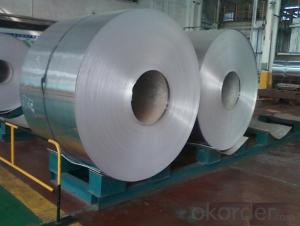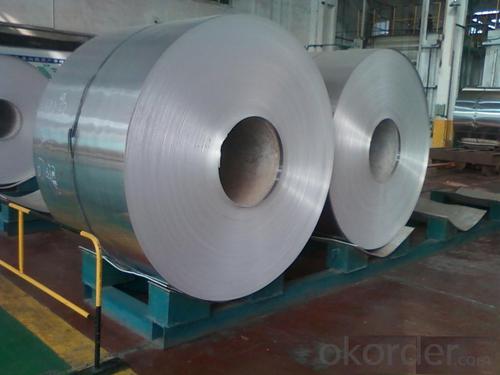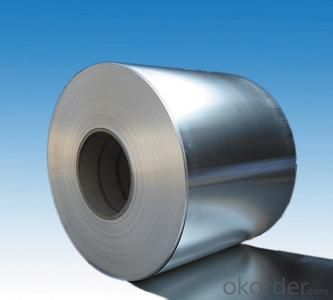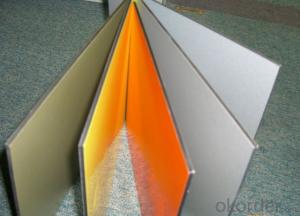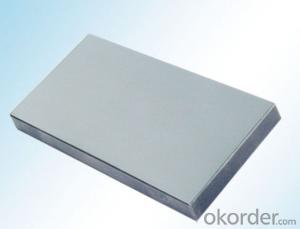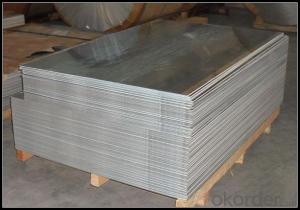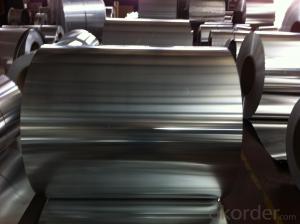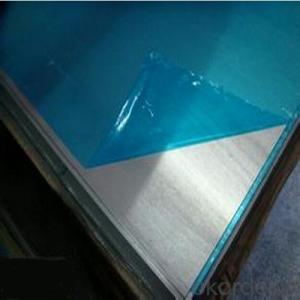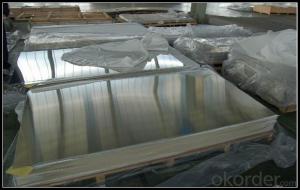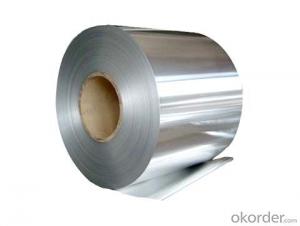Decorative Continuous Casting Aluminum Sheets for Building
- Loading Port:
- Shanghai
- Payment Terms:
- TT OR LC
- Min Order Qty:
- 5 m.t.
- Supply Capability:
- 20000 m.t./month
OKorder Service Pledge
OKorder Financial Service
You Might Also Like
Specification
1.Structure of Continuous Casting Aluminium Coils
Continuous Casting Aluminium Strip in Coil is one semi-finished aluminium material. This strip can be rolled down to aluminium coil,sheet,circle ect. The alloy AA1050 is widly used in building, industry ect. Its weight is much lower than steel. So many customers choosed aluminium material instead of steel.
2. Main features of Continuous Casting Aluminium Coils
a.Competitive price---We have our own mills and can produce mill finished aluminium coils, so we can control the production cost better.
b.Professional after-sale service---We have more than 15 years exportation experience and you need not worry about the exporation problems.
c.Fast delivery time---We can control the delivery time within 35 days.
3. Image
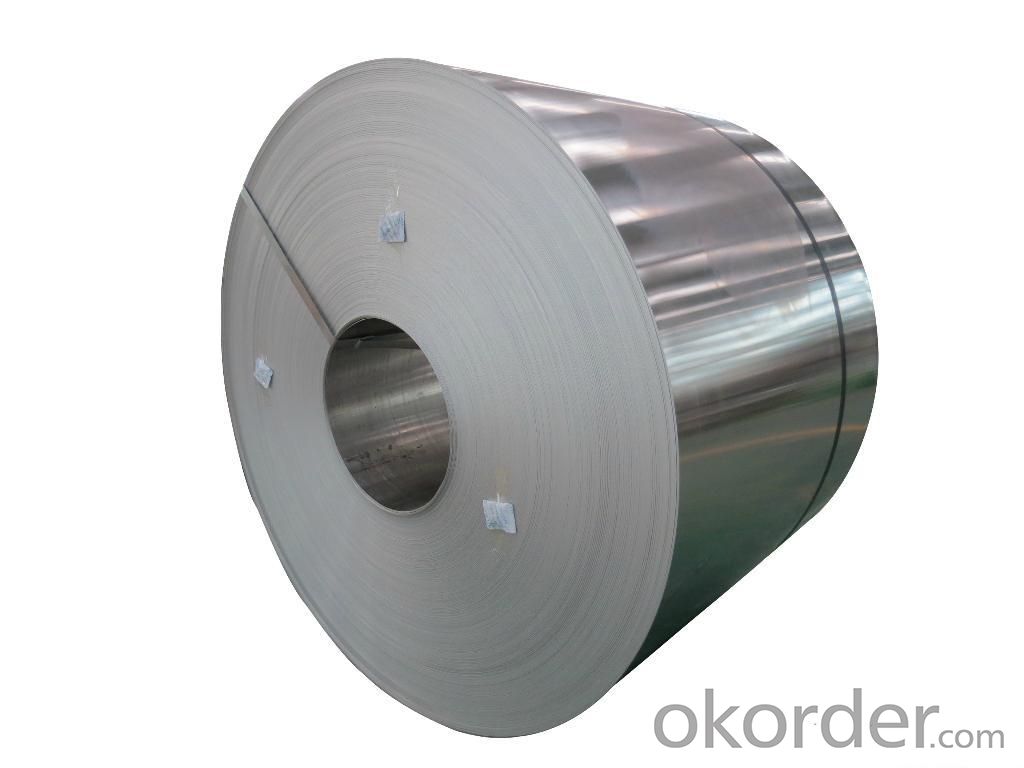
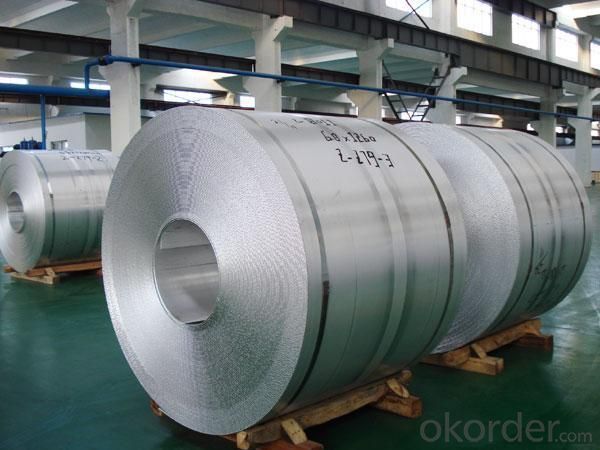
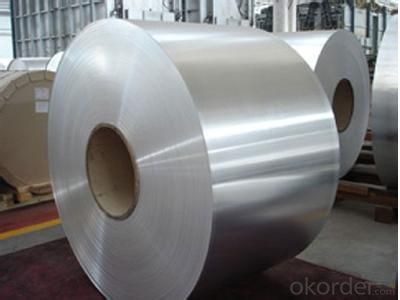
4. Product Specification
| Alloy | Temper | Style | Thickness | Width |
| AA1100 | H14 | Continuous Casting | 0.2mm-3mm | 1000mm-1500mm |
5.FAQ:
What is the quality standard?
---Usually our standard is GB3880-2006
What is the largest width?
---It is 2300mm
What is the MOQ?
---Usually we can accept 80 tons.
- Q: Are aluminum sheets suitable for beverage cans?
- Yes, aluminum sheets are suitable for beverage cans. Aluminum is a widely used material in the beverage industry due to its unique properties. It is lightweight, corrosion-resistant, and provides an excellent barrier against light, oxygen, and moisture, which helps to preserve the quality and freshness of the beverage. Additionally, aluminum is easily formable, allowing for the production of various can shapes and sizes. It is also recyclable, making it an environmentally friendly choice. Overall, aluminum sheets are an ideal material for beverage cans, meeting both functional and sustainability requirements.
- Q: Can aluminum sheets be laminated?
- Yes, aluminum sheets can be laminated. Lamination involves bonding a layer of material, such as plastic or paper, to the surface of the aluminum sheet to provide protection, enhance aesthetics, or improve functionality.
- Q: How do aluminum sheets perform in terms of water resistance?
- Aluminum sheets generally exhibit excellent water resistance due to their natural oxide layer, which forms a protective barrier against corrosion. This oxide layer prevents water from penetrating the surface, making aluminum sheets highly resistant to water damage and rusting.
- Q: Can aluminum sheets be used for chemical pumps?
- In certain applications, aluminum sheets can serve as a viable option for chemical pumps. Due to its lightweight nature and corrosion-resistant properties, aluminum proves to be a suitable material for handling a variety of chemicals. However, it is crucial to carefully consider the specific chemical being pumped and its compatibility with aluminum. It is possible for some aggressive or highly corrosive chemicals to react with aluminum, which could result in damage or contamination. In situations like these, it may be more appropriate to explore alternative materials such as stainless steel or plastic. Furthermore, it is essential to take into account the pump's design and construction in order to ensure proper sealing and protection against leaks or spills. For a specific application, it is advisable to seek guidance from a chemical engineer or an expert in the field to assess the compatibility and feasibility of employing aluminum sheets for chemical pumps.
- Q: Can 101 aluminum sheets be perforated?
- Indeed, it is possible to perforate 101 aluminum sheets. Perforation involves the creation of a hole pattern in a material, and aluminum is frequently chosen for this purpose due to its adaptable and sturdy nature. The inclusion of the number "101" likely denotes the alloy type or specific grade of aluminum, which has no bearing on its perforatability. Hence, accomplishing the perforation of 101 aluminum sheets is easily achievable through several techniques such as punching, laser cutting, or drilling, contingent upon the desired hole pattern and size.
- Q: Are 101 aluminum sheets suitable for chemical processing environments?
- Yes, 101 aluminum sheets are suitable for chemical processing environments. 101 aluminum is a commercially pure aluminum alloy that offers good corrosion resistance and excellent weldability. It is often used in applications where high corrosion resistance is required, such as chemical processing plants. Additionally, 101 aluminum sheets can be further protected by applying a protective coating or anodizing process, which enhances their resistance to chemicals. Overall, 101 aluminum sheets are a suitable choice for chemical processing environments due to their corrosion resistance and ability to withstand exposure to various chemicals.
- Q: im wondering what happens if you MIG weld aluminum with the correct wire but without using a shielding gas? Would it just be extremely messy or does there HAVE to be an inert gas flowing for it to bond?thanks
- In the presence or air, the aluminum oxidizes so fast that making a bond becomes extremely difficult. The shielding gas prevents oxidation by excluding oxygen. The gas doesn't enter into the process, it just inhibits oxidation.
- Q: How many square meters does the aluminum plate engrave?
- The price of aluminum sheet is calculated according to the price of aluminum ingot + processing fee (aluminum plate state), and the specific price is also different according to the size and size of aluminum sheet. If you have any questions, please ask, thank you.
- Q: What are the different methods of surface passivation for aluminum sheets?
- There are several different methods of surface passivation for aluminum sheets, each with its own advantages and applications. Some of the commonly used methods include anodizing, chromate conversion coating, and organic coating. 1. Anodizing: Anodizing is a widely used method that involves creating a thick protective oxide layer on the surface of the aluminum sheet. This is achieved by immersing the sheet in an electrolyte solution and passing a current through it. Anodizing provides excellent corrosion resistance, improves the surface hardness, and allows for various color options through dyeing. It is commonly used in architectural and decorative applications. 2. Chromate conversion coating: Chromate conversion coating, also known as chemical conversion coating or chromating, involves treating the aluminum surface with a solution containing chromate compounds. This method provides a thin, protective layer that improves corrosion resistance and enhances paint adhesion. It is widely used in aerospace, automotive, and electronics industries. 3. Organic coating: Organic coating refers to the application of a protective layer of organic material, such as paint or powder coating, onto the aluminum surface. This method provides exceptional corrosion resistance and can also offer aesthetic options. Organic coating is commonly used in industries where the aluminum sheets are exposed to harsh environments or require specific colors or finishes. 4. Plasma electrolytic oxidation (PEO): PEO is a relatively newer method that involves immersing the aluminum sheet in an electrolyte solution and passing high-voltage current through it. This process leads to the formation of a ceramic-like oxide layer on the surface, which enhances corrosion resistance, hardness, and wear resistance. PEO is commonly used in applications requiring high-performance coatings, such as aerospace and automotive industries. 5. Passivation with acids or chemicals: Passivation using acids or chemicals involves treating the aluminum surface with a solution that removes impurities and forms a protective layer. This method helps in reducing the reactivity of the surface and enhances corrosion resistance. It is commonly used in industrial applications where aluminum sheets are exposed to harsh chemicals or environments. Overall, the choice of surface passivation method for aluminum sheets depends on the specific requirements of the application, such as corrosion resistance, aesthetics, hardness, and environmental factors. It is important to consider factors such as cost, durability, and the desired performance characteristics when selecting the appropriate method.
- Q: How does aluminum sheet perform in extreme temperatures?
- Aluminum sheet performs well in extreme temperatures as it has a high melting point of 660°C (1220°F) and exhibits excellent thermal conductivity. It can withstand both hot and cold temperatures without significant deformation or structural damage, making it suitable for various applications in extreme environments.
Send your message to us
Decorative Continuous Casting Aluminum Sheets for Building
- Loading Port:
- Shanghai
- Payment Terms:
- TT OR LC
- Min Order Qty:
- 5 m.t.
- Supply Capability:
- 20000 m.t./month
OKorder Service Pledge
OKorder Financial Service
Similar products
Hot products
Hot Searches
Related keywords
